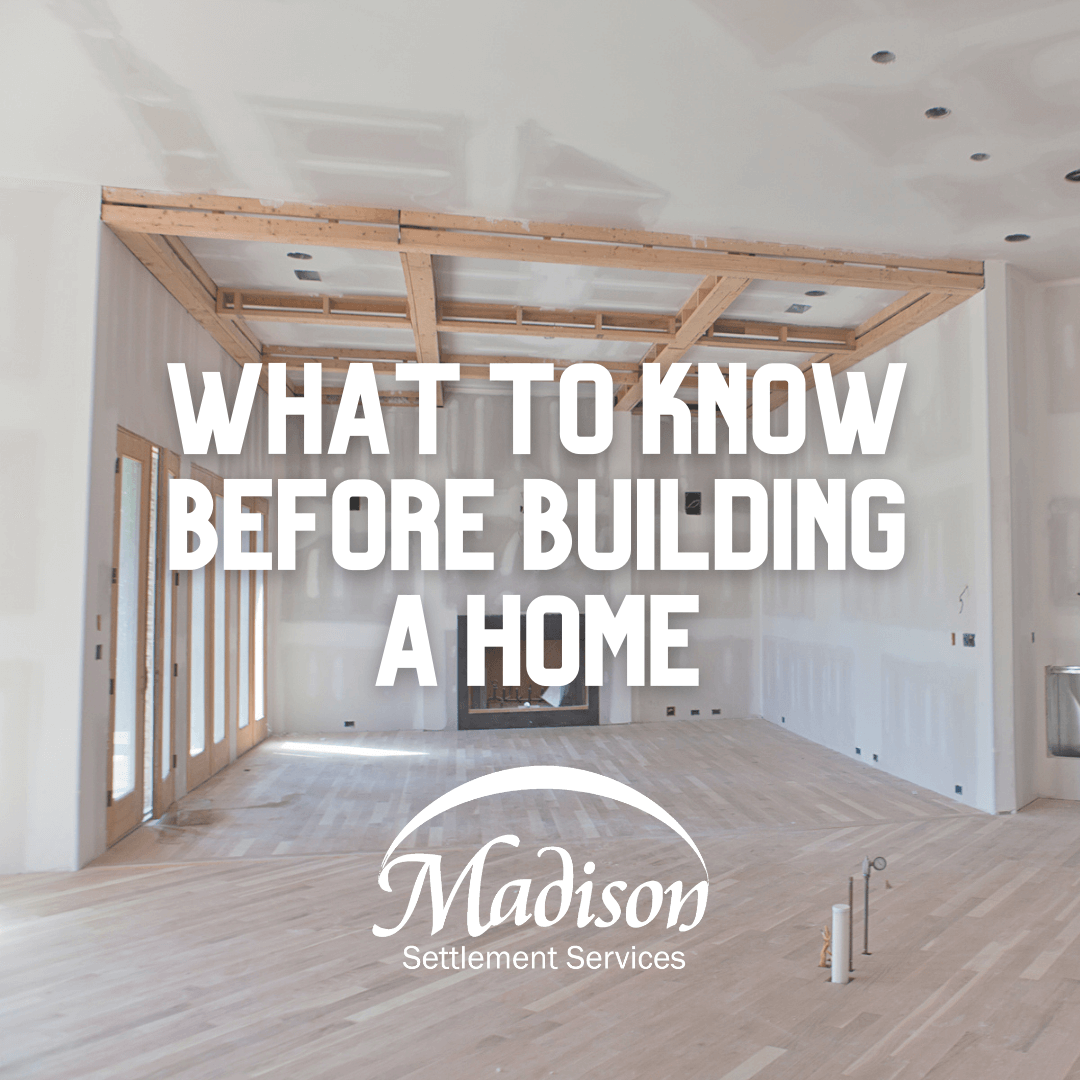
Building a Home? What to Know Before Breaking Ground
Have you found yourself scouring real estate sites for your dream home to buy only to still not find the one? Maybe you’ve decided on building a home – custom to your ideas and needs – instead. A custom-built home is a way of designing everything in your house just the way you like. However, do you know that there are some factors to consider when building a home?
Read on to learn about the steps and outlook!
The First Step to Building Your Home
Have you purchased land? Without land, you clearly will not have a house to build on. You can choose to purchase the land on your own or hire a real estate agent to help you. Old Republic Title recommends seeking out a real estate professional for this aspect because they “will help you filter out unsuitable lots and save you from trying to tackle complex land topics, such as property set-backs, zoning regulations, natural hazard zones and utilities.”
We highly recommend purchasing title insurance once you’ve found your perfect plot of land to build on. While the land may be unoccupied, there may be an unexpected title defect on the plot. Which could become costly for you to fix. For a one-time fee, title insurance protects you from financial liability or loss.
Finance
Now that you picked and purchased your plot, it’s time to consider the financing aspect of building a home. You may need to consider individual loans (one to buy land and one to build the house). *Research all your financing options available before starting the build process. *
There are a couple of financing options. One is a land loan, and the other is a construction loan. These are short-term loans and are usually considered specialty financing loans.
However, once your house has been built, you might have to combine the land and construction loans to permanent financing. No need to worry about this though if you are paying all-cash.
Blueprints and Permits
Sounds kind of catchy, doesn’t it? Blueprints and permits are the next steps to go through when building a home. As far as blueprints go, you have some options. You can save money by hiring a drafts person or go with a stock house plan. If you want your dream, custom-built home, then consider hiring an architect to draft the blueprints and oversee the project.
As for building permits, you know the drill on that. You must acquire all the proper building permits before building a home. Without permits, you could find yourself fine-deep along with delays. You’ll need a permit for building, electrical, plumbing as well as mechanical. The requirements by state, county, etc. may vary so be sure to check out FEMA’s Building Codes Toolkit for additional help.
Who You Going to Call?
A contractor, that’s who! Particularly if you decide to not use an architect. A general contractor will get the ball rolling on getting your dream home built and ready to move into. However, you MUST do your research in finding the best contractor for the job. Ask around, do some research on the World Wide Web, contact a local Home Builders Association. You wouldn’t take your car to a mechanic without research, right? The same goes for finding the best contractor for the job.
Building a Home Timeline
All good things come with time including your custom-built house. The average construction (based on a 2019 census) can range from eight to fourteen months. Of course, there are factors such as permit approval, weather, material supply, size of the house, complexity of the design, labor constraints, and site conditions.
If you choose to go the architect route, expect to tack on a potential three to nine months to the process.
Outlook and Costs/Budget
These past couple of years have caused quite a ruckus with supply and demand issues due to the pandemic. Because of that, prices have increased for supplies. Keep that in mind as you set your budget and costs plan for building your home. You also need to factor in the average costs of the land, an architect (is using one), architectural plans, permits, utility lines, landscaping, etc.
Create a list of your wants and needs and discuss those costs with the general contractor or by doing your research.
As far as the outlook of building a home, remember to simply weigh the pros and cons of going this route instead purchasing an existing home. Nothing in life is guaranteed, including the supply and costs of a custom-built home.
Our Final Piece of Advice
Whatever path you decide, always remember to protect yourself and your property (especially land when building your house) by speaking with a licensed and professional settlements company like Madison Settlement Services and purchasing title insurance to protect your largest investment.

